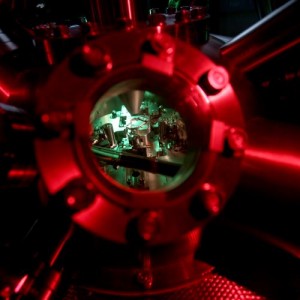April 9, 2015, by paxsk3
Collaborations: On Winning Friends and Influential Science
In The Selfish Gene, Richard Dawkins extols the virtues of altruism and cooperation in benefitting species and their survival. For humanity, nowhere is this demonstrated more prominently than in scientific research where collaboration is essential in almost every aspect of the craft. Not only do they result in expansion of the knowledge base but also allow groups to share equipment, funds and brain power. As a third year PhD student, I have experienced first hand how this works and the various forms collaborations can take. In an increasingly globalised society, links are now being formed around the world between different departments, groups, institutions and businesses. Each different organisation has it’s own goals and agendas but opening dialogues and working co-operatively helps to bridge gaps and, hopefully, make the experience of discovery simpler for everyone involved. With this article I aim to elucidate the inner workings of collaborations and how different relationships within science compare and contrast.
My PhD is a CASE studentship, which signifies that I am funded by industry, in this case by the American silicones company Dow Corning. This mutual venture between my research group of Biophysics and Surface Analysis and Dow was set up before I arrived at Nottingham. Commercial collaborations usually involve an industrial organisation providing funding and resources to the institution and this is precisely the situation with my PhD. My department offers expertise and equipment that can provide relevant results to what Dow aims to achieve with a specific product. Further perks of such an association are that I get to take trips to the Belgian site; all in the name of standardisation you’ll understand!
Science being the complex, multi-faceted discipline that it is, even world-leading professors aren’t experts in everything. To solve certain problems, other approaches from different areas of science may be required. In the first instance it is important to develop contacts within your own institution, particularly if it is a large and diverse one such as The University of Nottingham. It is rarely the case that all of the desired experimental equipment or knowledge is based in a single department, so relationships need to be formed between different departments, groups and people. In my case my supervisors have developed strong working connections with the nano-centre in the physics department. We are able to use particular equipment at a discounted price and potentially obtain faster access to it. The difference between these more academic relationships than the remunerative ones is that the mutual benefit is further discovery and potential publications that can equally boost the reputation of both research groups.
Scientific equipment is both complicated and expensive, therefore there are usually only a handful of centres that have the adequate facilities and staff to house them. For example, I require the use of X-Ray Photoelectron Spectrometers, which determine the elemental chemical make-up of a surface. Only a handful of these exist in the country. Whilst we have an instrument in Nottingham, a particular type was required for an experiment I wanted to undertake and Newcastle University and Imperial College are the only institutions which possess the necessary facilities. Again, it was important that my academic superiors had strong links with the surface analysis centre in Newcastle to allow me to carry out this particular test. After spending a day with the group (you may have noticed travel is a wonderful advantage of this whole process!) it was quite clear that it would be beneficial for both of us to work towards publishing, which is brilliant for someone like me just starting out in research. Also, in a few months time I will hopefully be heading to another university in mainland Europe to carry out more work in a slightly different area. The scientific world is indeed a global one now, so expertise and aid can come from almost anywhere.
It may be sufficient to initially be linked to academics with a strong network of contacts but how does this relate to the student; how does one go about setting up their own collaborations? Firstly, simply by carrying out the day to day tasks of actually doing a PhD means you are in constant contact with people from different groups, places and organisations. The dreaded word networking inevitably rears its ugly head but it is of course a necessity. Social networking and increased communication speeds mean there is little excuse to not stay in contact with people you have met, whether old or new. Obviously the more successful you are as a researcher the easier it becomes but there are things students can do before they get to where they want to be. Conferences both in the UK and internationally exist almost specifically so people can meet, discuss and form relationships. Most importantly though, being interested and affable goes a long way to forming fruitful connections with people.
Collaborations are central both to good science and successful scientific careers. The scientific method requires discussion as well as extensive testing and forming connections with people can only help this activity. The many benefits should provide ample persuasion to anyone, even if it is just the opportunity to visit the four corners of the globe.
About the Blogger
Stephen Kenny is a third year PhD Student based in Boots Science Building. After completing a degree in biochemistry he moved into the field of nanoscience and never looked back.
No comments yet, fill out a comment to be the first



Leave a Reply